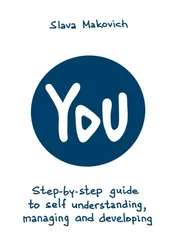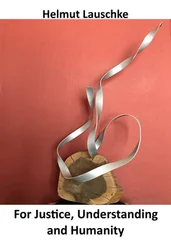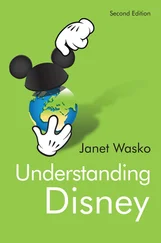As a British citizen I have one passport only, a passport for foreign travel. Unlike Russians, the British have no internal passport because they can move anywhere in their own country, and unlike most European citizens, we do not have an identity card.
My passport tells me that I am British. My 'official' country is the United Kingdom of Great Britain and Northern Ireland. That is too long and formal for most of us, so we simplify to 'Britain'. But what about my own feelings? 'The United Kingdom' is a legal term. I live in England. My parents and grandparents lived in England. Earlier ancestors came from Ireland and Scotland. I am surrounded by other British citizens whose grandparents came from France or Poland or Pakistan or Australia. We have different origins but we were all born and brought up in England so we think of ourselves as English. If I moved to Scotland, I would continue to think of myself as an Englishwoman living in Scotland. Scottish people who come south to live in England still think of themselves as Scottish. But if their children are born and brought up in England, they will probably think of themselves as 'English with Scottish roots'. The idea of 'nationality' within Britain until recently did not have a legal status; it seemed to be a matter of personal feeling.
In the last ten years or so, this situation has begun to change. Scotland, Wales and Northern Ireland have acquired new powers (which I discuss below) leaving England in a strange position. It is by far the biggest country in the United Kingdom, with a population of more than fifty million, five times larger than the populations of Scotland, Wales and Northern Ireland put together. So if we have to think about identity at all, it is important to consider what the English think about England. When the United Kingdom was more tightly entwined, the English were not curious about themselves. They were simply 'English', rather indifferent to other people, with a history of a thousand years in which they had never had to defend their Englishness against occupation. But now that the Scots and Welsh are defining themselves as being distinct from the English, we in England have started trying to explain to ourselves and the rest of the world who we are.
Who are the English?
For us it is a strange question to ask. What do we share which is distinctively English? A territory? A language? A history? Institutions? A culture? A religion? A 'mentality'? A football team? (Russians are always, unlike the English, asking themselves - and foreigners - what makes a Russian distinctively and uniquely Russian. Being English I have to ask specific questions to find out what might make the English distinctly and uniquely themselves. I cannot allow myself to make vague gestures of some spiritual significance. In England we like to know what we mean.)
So: Territory? Yes, we have clear and longstanding borders with Scotland and Wales, and a very definite coastline. We have no doubt at all that we are in England: the land stops when you reach the sea. Since the territory is not very large, we can be in easy contact with those who live farthest away from us within the country. You can drive at a sensible speed along good motorways in nine or ten hours from the southwest corner of England to the north east corner of England - although it would need another five or six hours to drive to the north eastern corner of Scotland.
A language? Yes and no. English people speak English, but the English language is spoken by millions of the world's population who are not English. A minority of us speak another language as our first tongue; recent immigrants have more than one language; those of us who have lived here for generations are monolingual apart from any knowledge of other languages we have picked up in school lessons.
A history? We share our history in the sense that the people who were living in England a thousand years ago, five hundred, two hundred, one hundred years ago have all contributed to the story in which we now take part. Most of us are convinced that our ancestors lived in Britain hundreds of years ago, so that we think of ourselves as having inherited that story. However about 8% of us are fairly recent immigrants who know that although we share the story of England today, we haven't inherited it. Does that matter? Like many other problems about identity, it seems to matter if individuals or groups believe that it matters. I discuss this problem in the chapter on history.
Institutions? Yes and no. Even if we do not think about it, in our social life we certainly share institutions such as Parliament, the legal system, the BBC and so forth. We know, for example, how our Post Office works, we know more-or-less how to use our Health Service, we have been through a particular school system which is distinctive and not quite like that of any other country. On the other hand most of those institutions also belong to the other countries of the United Kingdom. We do not have an 'English Parliament' for example.
A religion? Yes - and no. Historically Britain was, like the rest of Europe, a Christian nation, and our national ceremonies, such as our commemoration of those who died in our wars, draw on Christian rituals. Many people would argue that England rests on Christian foundations, and that our attitudes and values are basically Christian. Surveys, on the other hand, suggest that millions of British citizens, nearly half of us, seem to have either no religious belief or vague feelings of spirituality unconnected with any named religion. Among the religious believers, a small but often devout minority are Muslims, and among Christians there are many different groups whose beliefs and practices vary so much that an observer might think they belonged to different religions.
A culture? This is the most difficult question of all, and I will be discussing it throughout this book. It is easier to describe the 'culture' of smaller nations in contrast to their bigger neighbours. The Welsh and the Scots think of themselves as being culturally distinctive, that is, that they are not like the English. But what is English culture? In the 1930s people used to write confidently of an English culture based upon a stereotype of the English gentleman and a quiet, law-abiding society. (Most of your textbooks write about a Soviet version of a pre-Second World War culture.) By the late 1960s and the early 1970s it seemed to some commentators that England had turned itself upside down. It was open, extreme, explosive, crazy, and the British led the world in popular music and in fashion. Those years have gone; they were replaced by the 1980s when our Prime Minister (the Head of Government) was Mrs Thatcher. She encouraged everybody to become 'enterprising' and make money. England was to become entrepreneurial. Many of the old traditions were abandoned; privatisation was the official creed. In the 1990s some of Mrs Thatcher's schemes were reversed, but Britain was changed beyond reversal. So, looking back from near the end of the first decade of the twenty-first century we find it difficult to decide what we mean by English culture. Is it a 'typical' way of behaving or the manner in which we entertain ourselves or is it something political? How do our arts contribute to it - arts such as poetry, painting, sculpture, and music? Are the popular arts (rock music) more or less important in creating a culture? Certainly it is not easy to say what we share as a nation, although I hope to show you by the time you have reached the end of the book that our culture is something to which we all contribute.
Do we have a distinctive 'mentality'? This is a word which has been taken into Russian from the French, and although it is much loved by you, it has no equivalent in English. Do we share a distinctive outlook on the world? Do we celebrate certain emotional and intellectual qualities? Perhaps: but it is characteristic of the English that I begin to feel very cautious at this point. The classic answer is that we share a sense of humour which is deeply ironic and difficult for other people, including Russians to understand. Other words which are often used are 'tolerant' and 'private' and even 'polite'. At this point I do not want to generalise. You must reach the end of the book in order to find out how we might describe English culture and values.
Читать дальше












